Students Helping Students Through Mental Health First Aid

![]() “I participated in the Youth Mental Health First Aid (YMHFA) training in March of 2015. When I arrived, I met a group of students who were all passionate about making a difference in their schools and communities. It was amazing to be surrounded by people my age that cared as much as I did about youth mental health. It was great to see a representation from many different schools in the area, including Hanover, Lebanon, Mascoma, Hartford, and Stevens.
“I participated in the Youth Mental Health First Aid (YMHFA) training in March of 2015. When I arrived, I met a group of students who were all passionate about making a difference in their schools and communities. It was amazing to be surrounded by people my age that cared as much as I did about youth mental health. It was great to see a representation from many different schools in the area, including Hanover, Lebanon, Mascoma, Hartford, and Stevens.
The beginning of the training focused on the broad subject of mental health. We learned about different mental illnesses and how to interact with those who have them. We learned the correct way to refer to those suffering from mental illnesses – for example, saying “the person with schizophrenia,” rather than, “the schizophrenic”. The two terms mean the same thing, but the first one recognizes the illness as just part of the person, instead of letting the illness define the person.
Next we looked at various hypothetical scenarios in which our peers needed help with regard to their mental health. Small groups of students were each assigned a scenario; the groups discussed how to help their peers and presented their ideas to the larger group. Then the other groups had time to give feedback on that group’s approach to the problem and other possible solutions. These scenarios were helpful because they showed us that often we are not the ones providing help. Often we are the one who brings the friend to the school counselor, the one who helps the friend talk with his or her parents, or the one who goes to the friend’s sibling and expresses concern.
After the scenarios, we practiced listening to a peer, assessing the situation, and helping the peer get support. Part of this involved asking, “Have you thought about killing yourself? Do you have a plan?” These words are very difficult to ask, and I was grateful for the opportunity to practice, though I hoped I would never have to use them in a real situation. Just months after the training, though, I asked my friend those questions. My friend needed help and I was able to see how severe the situation was. I am so glad I knew what to ask and how to ask it. I was able to help my friend receive treatment.
The YMHFA training helped me to support my friends, my classmates, and even complete strangers. I would recommend this program to anyone who is interested in supporting other teens with mental health issues. Even if there is not a specific mental health issue involved, the skills from this training can still be very useful. I believe there should be a group of students with knowledge of mental health in every high school in the country – it would help students live healthier, happier, longer lives.” – Submitted by Ella Williams, Hanover High School
West Central Behavioral Health made a commitment to provide training in Mental Health First Aid and Youth Mental Health First Aid several years ago as one way to make our communities more supportive of people living with mental illness. This evidence-based program is usually for adults who want to help others experiencing mental health crisis or recognize when mental illness may be a factor in their interactions with others.
About two years ago, a Destination Imagination Team at Lebanon High School completed a community service project entitled “Students Helping Students Through Mental Health First Aid,” which brought a slightly modified version of the training to a group of upper level students. After a successful trial run, Katie McDonnell, at West Central Behavioral Health, reports, “We worked with a leadership group of students and advisors at Lebanon High who applied for, and received, a 3 year grant to provide two trainings per year to high school juniors and seniors who were identified as ‘mature.’ This is critical because the subject matter is quite powerful, and requires a level of maturity. Our trainings have been very successful with this population. I believe so strongly that the students are KEY in being educated about this topic. They are often the first to notice something may be going on with a peer, so providing them the information and some skills on how to help is SO important.” The grant allowed the Lebanon students to reach out to students in neighboring schools to spread the training around.
To learn about MHFA and YMHFA training opportunities in the Upper Valley, go to: www.wcbh.org.




I would like to thank that Lebanon High School Destination Imagination team for bringing MHFA to the Upper Valley through a 2013 community service project. This team saw a need and worked hard to fill it. About 1/5 teens has a diagnosable mental illness yet due to lack of knowledge and fear of judgment, 80% of these teens who suffer from an illness remain unrecognized, undiagnosed or untreated. Ultimately the lack of any intervention leads to problems with school attendance, academic performance, relationships, employment and even the legal system. Suicide is a leading cause of death in teens. The lesson: Early recognition and intervention not only improves teens’ lives but also saves teen lives. A way to achieve the goal of reducing suffering is to embed teen MHFA providers inside high schools, trained teens who can approach and assess, offer information, and give self help strategies and guide their peers toward existing professional help if needed. I would like to thank the MHFA teen founders from LHS Class of 2014 & 2015 for starting “Students Helping Students Through Mental Health First Aid”: Gergana Alteva, Julia Blike, Nabil Kahn, Gavin Morgan and Ethan Ticehurst. And thank West Central Behavioral Health, LHS Student Assistance Coordinator Emily Musty, LHS students Jill Dion & Lauren Anikis and The Jack & Dorothy Byrne Foundation for helping this valuable program to continue.
Rebecca, Thank you for providing valuable history about how this project started. There are a number of great teens who stepped up to find a way to help their peers and more keep stepping up. That’s why the Upper Valley is such a good place to live.